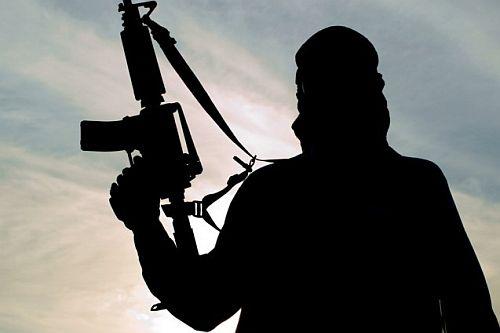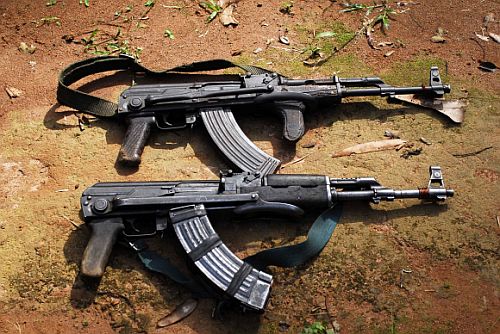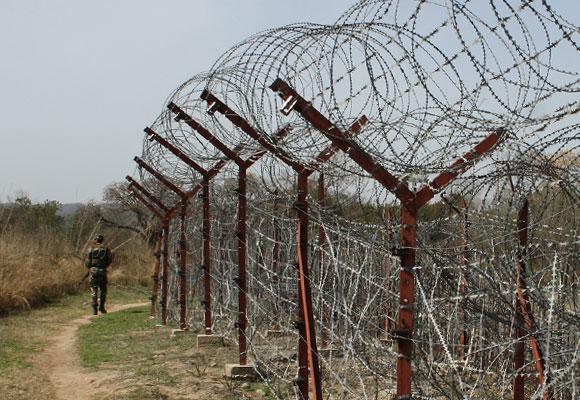A regiment of 30,000 fighters for the Pakistan army in India depends largely on the money, a staggering amount, that is generated through illegal animal skin trade and drug smuggling, a report of the military intelligence bureau has said. Vicky Nanjappa reports.
During each of these operations which involve five terrorists or less, two officers of the Pakistan army always accompany them. The officers who train these are the ones who read the logistics and even give the command for an attack.
During the duration of the attack, the army officers are constantly in touch with the army base in Pakistan that offers instructions. This report of the military intelligence confirms beyond doubt that officers of the Pakistan army are physically present during every attack in the valley.
These terrorists, who are part of the Mujahideen regiment of the Pakistan army have always relied on the grants that the military gets from the United States or the Gulf. A large part of the funds that come in from America are grants for Pakistan, are often diverted to fund the Mujahideen regiment.
This regiment, which is commanded by an officer of brigadier rank also depends on the funds that are generated through donations from Gulf which has set up financial institutions in the form of Madrasas and charities in Qatar.
...
Drug trade/smuggling finances Pakistan's anti-India regiment
These terrorists, who are part of the Mujahideen regiment of the Pakistan army, have always relied on the grants that the military gets from the United States or the Gulf. A large part of the funds that come in from America are grants for Pakistan, are often diverted to fund the Mujahideen regiment.
This regiment, which is commanded by an officer of brigadier rank, also depends on the funds that are generated through donations from the Gulf.
However, with the help of the Inter-Services Intelligence, the Pakistan army found that procuring funds through the above mentioned means was coming under scanner. So it was decided that the funds from the US and Qatar and the drug trade would be used for the bigger operations and the smaller ones had to be financed through a smaller mechanism.
It was at this time that the ISI and Pakistan decided that they would use the border trade agreements through which dry fruits are exported. At least 50 operatives have been masquerading as dry fruits vendors were handpicked by the Pakistan army to smuggle animal skin.
The interrogation of Ahmed Gulam Hasan Naiku, an activist of the Hizbul Mujahideen (which has a very high percentage of operatives in the Mujahideen regiment) revealed that the Pakistan army had insisted that they capitalise on the border trade agreement. Naiku was taken by his handler to meet the head of the Mujahideen regiment.
Drug trade/smuggling finances Pakistan's anti-India regiment
“The handler was a brigadier and the head of the regiment. He personally instructed me to impersonate a vendor and operate between Khandahar and India via Pakistan,” Naiku reportedly told his interrogators.
This trade is allegedly done with the approval of the Pakistan government who has instructed its officers to look the other way when such a consignment enters India through Kandahar.
According to investigators, the money earned through this trade amounts to nearly Rs 10 crore a month and the Pakistan army has been encouraging it since the past three years now.
The consignment of animal skin is collected from Khandahar and then brought into the Punjab province in Pakistan. According to the report, stalls have been set up in this part of Pakistan to collect the consignment and this happens in the open despite the government’s knowledge that the trade is illegal. While some part of the consignment remains in Pakistan, the rest is smuggled to other parts of the world including India. Animal skin is in great demand at places where the leather industry flourishes and this in fact generates a lot of money.
According to the Intelligence Bureau, a large part of this money goes to the Pakistan military which uses is specifically to fund activities in the Valley. The Pakistan military and the ISI have recruited at least 50 persons for this trade and have even set up their moles in India to further this trade.
The moles help collect the material and distribute it in the market, the officer also pointed out. Naik, for instance was one such mole operating in Maharashtra, the investigation on him has shown.




article